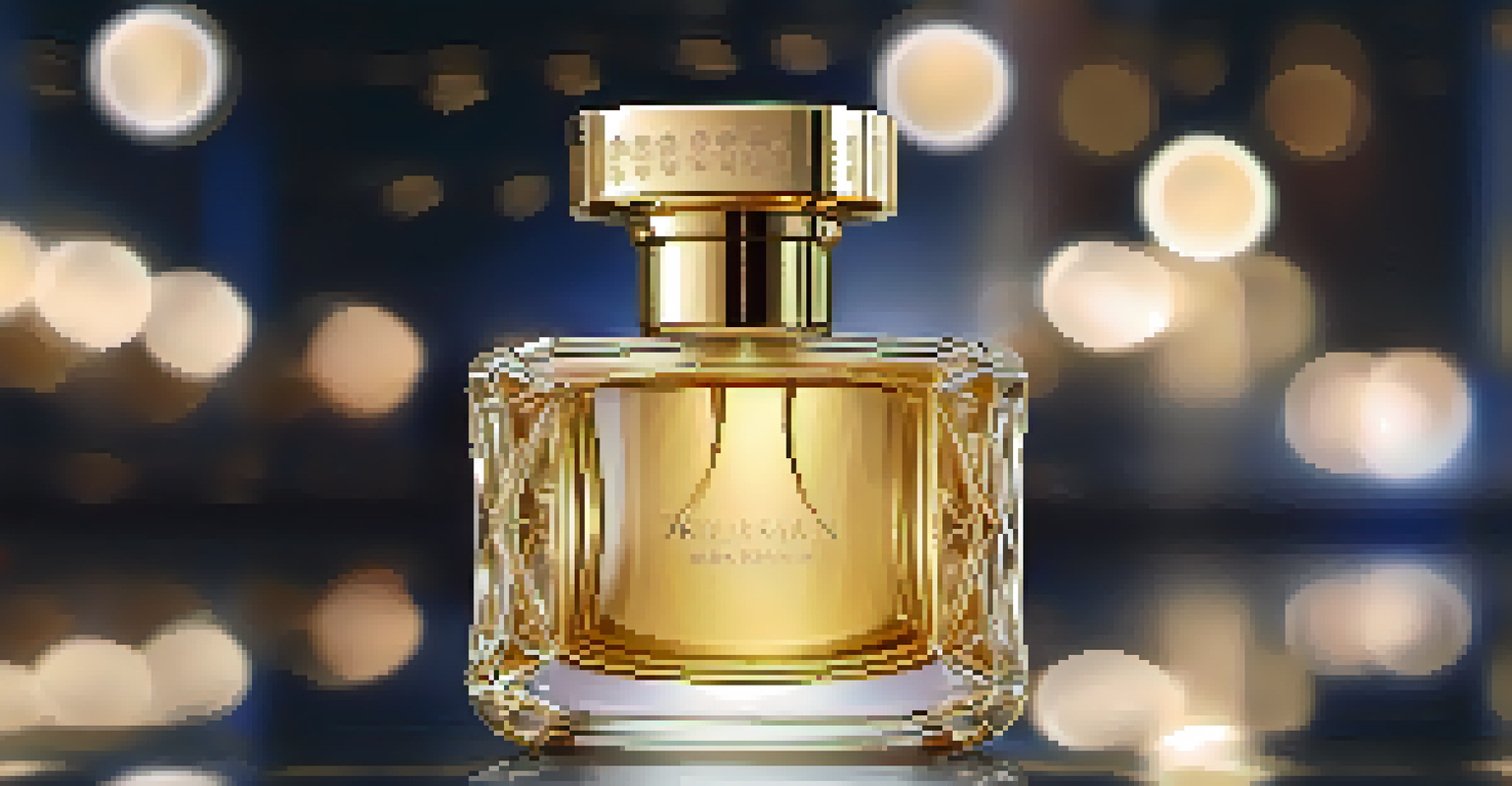Influencer Marketing: Shaping Luxury Digital Narratives

Understanding Influencer Marketing in the Luxury Sector
Influencer marketing has become a cornerstone in the luxury sector, reshaping how brands communicate with their audience. Unlike traditional advertising, this approach leverages the trust and authenticity of influencers, who have cultivated loyal followings. Luxury brands are now collaborating with influencers to craft narratives that resonate deeply with consumers, making their messaging more relatable and engaging.
Authenticity is the foundation of influencer marketing, especially in the luxury sector, where consumers value genuine connections.
These influencers often embody the lifestyle that luxury brands aim to represent, allowing them to showcase products in a genuine context. This method not only enhances visibility but also fosters an emotional connection between the brand and its customers. By sharing personal experiences and unique storytelling, influencers breathe life into luxury products, turning them into coveted items.
Moreover, the luxury market is evolving, with younger consumers seeking authenticity and relatability. Influencer marketing meets this demand by portraying luxury in a way that feels attainable yet aspirational. The result is a digital narrative that captivates audiences and drives engagement, ultimately leading to increased brand loyalty.
The Role of Storytelling in Luxury Influencer Campaigns
Storytelling is at the heart of successful influencer marketing campaigns, especially in the luxury sector. Brands collaborate with influencers to create captivating narratives that not only highlight the product but also evoke emotions. For instance, an influencer might share a personal story about how a luxury watch became a family heirloom, rather than simply promoting its features.

These stories create a deeper connection with the audience, inviting them to envision the product as part of their own lives. The narrative becomes a journey, where the luxury item is not just a purchase but a symbol of status, aspiration, or personal achievement. This transformation is crucial in the luxury market, where emotional appeal often drives purchasing decisions.
Influencer Marketing Drives Authenticity
Luxury brands leverage influencers to create relatable narratives that foster emotional connections with consumers.
Additionally, the visual aspect of storytelling plays a significant role. High-quality images and videos shared by influencers can enhance the narrative, showcasing the product in a lifestyle setting. This approach not only attracts attention but also reinforces the brand's image, making it more desirable and exclusive.
Choosing the Right Influencers for Luxury Brands
Selecting the right influencers is crucial for luxury brands looking to create impactful marketing campaigns. It's not just about follower count; brands should prioritize the influencer's alignment with their values and aesthetic. A perfect match can amplify the brand's message and ensure authenticity, making the collaboration more effective.
The future of luxury marketing lies in storytelling that resonates with the audience and evokes emotions.
Luxury brands often opt for micro-influencers, who may have smaller followings but boast higher engagement rates and a more targeted audience. These influencers tend to share a genuine passion for the products they promote, which resonates well with their followers. This authenticity can lead to more meaningful interactions and increased brand loyalty.
Moreover, brands should consider the influencer's content style and how it complements their own identity. A well-aligned influencer can seamlessly integrate luxury products into their existing narrative, creating a harmonious blend that appeals to both their audience and the brand's customer base.
Measuring the Impact of Influencer Marketing
Measuring the success of influencer marketing campaigns in the luxury sector can be challenging, but it’s vital for understanding ROI. Brands should track metrics such as engagement rates, website traffic, and conversion rates to gauge effectiveness. Tools like Google Analytics and social media insights can provide valuable data, helping brands fine-tune their strategies.
Additionally, qualitative metrics, such as audience sentiment and brand perception, are equally important. Monitoring comments and feedback on influencer posts can reveal how the audience feels about the brand and its products. This information can guide future campaigns, ensuring they align with consumer expectations and desires.
Storytelling Enhances Brand Engagement
Engaging narratives shared by influencers transform luxury items into symbols of aspiration and personal achievement.
Furthermore, tracking long-term brand loyalty through repeat purchases or increased social following can provide insight into the campaign's lasting impact. By analyzing both quantitative and qualitative data, luxury brands can continuously refine their influencer marketing efforts and maximize their effectiveness.
The Importance of Authenticity in Luxury Influencer Marketing
Authenticity is paramount in luxury influencer marketing, where consumers are increasingly savvy about insincerity. Influencers who genuinely believe in and use the products they promote resonate more with their audience. This authenticity not only builds trust but also fosters a sense of community around the brand.
Luxury brands must prioritize partnerships with influencers who share their values and aesthetics, ensuring that promotions feel organic. When audiences perceive a genuine connection, they are more likely to engage with the content and consider the products. This sincere approach can elevate brand perception and drive sales.
Moreover, transparent communication about collaborations is essential. Disclosing partnerships helps maintain trust and authenticity in the eyes of consumers. When influencers openly share their experiences with luxury products, it enhances credibility and reinforces the narrative of genuine endorsement.
Navigating Digital Trends in Luxury Influencer Marketing
The digital landscape is constantly evolving, and luxury brands must stay ahead of trends in influencer marketing. Platforms like Instagram, TikTok, and YouTube have unique audiences and content styles, which can influence how brands approach their campaigns. For instance, short-form videos on TikTok can showcase products in dynamic and engaging ways, appealing to younger consumers.
Additionally, emerging technologies such as augmented reality (AR) can enhance the influencer experience. Brands can collaborate with influencers to create AR filters that allow consumers to virtually try on luxury items. This interactive element not only engages the audience but also makes the shopping experience more fun and memorable.
Data and Trends Shape Future Strategies
Staying ahead of digital trends and using data analytics will be crucial for luxury brands in optimizing their influencer marketing efforts.
Staying attuned to consumer preferences and platform innovations is vital for luxury brands. By embracing these digital trends, brands can create fresh and relevant narratives that resonate with their target audience, ensuring their influencer marketing efforts remain impactful.
Future Trends in Luxury Influencer Marketing
As luxury influencer marketing continues to evolve, several key trends are emerging that brands should watch. One significant trend is the rise of sustainability, with consumers increasingly seeking brands that prioritize eco-friendly practices. Influencers who advocate for sustainable luxury can help brands connect with this conscientious audience, reinforcing their commitment to responsible consumption.
Another trend is the increasing importance of experiential marketing. Luxury brands are likely to collaborate with influencers to create exclusive events or experiences that showcase their products. This approach not only generates buzz but also creates memorable moments that resonate with consumers, enhancing brand loyalty.

Finally, the integration of data analytics and AI tools will play a crucial role in shaping future campaigns. By leveraging data, brands can gain insights into consumer behavior and preferences, allowing for more targeted and effective influencer partnerships. As the landscape evolves, those who adapt and innovate will likely thrive in the competitive luxury market.